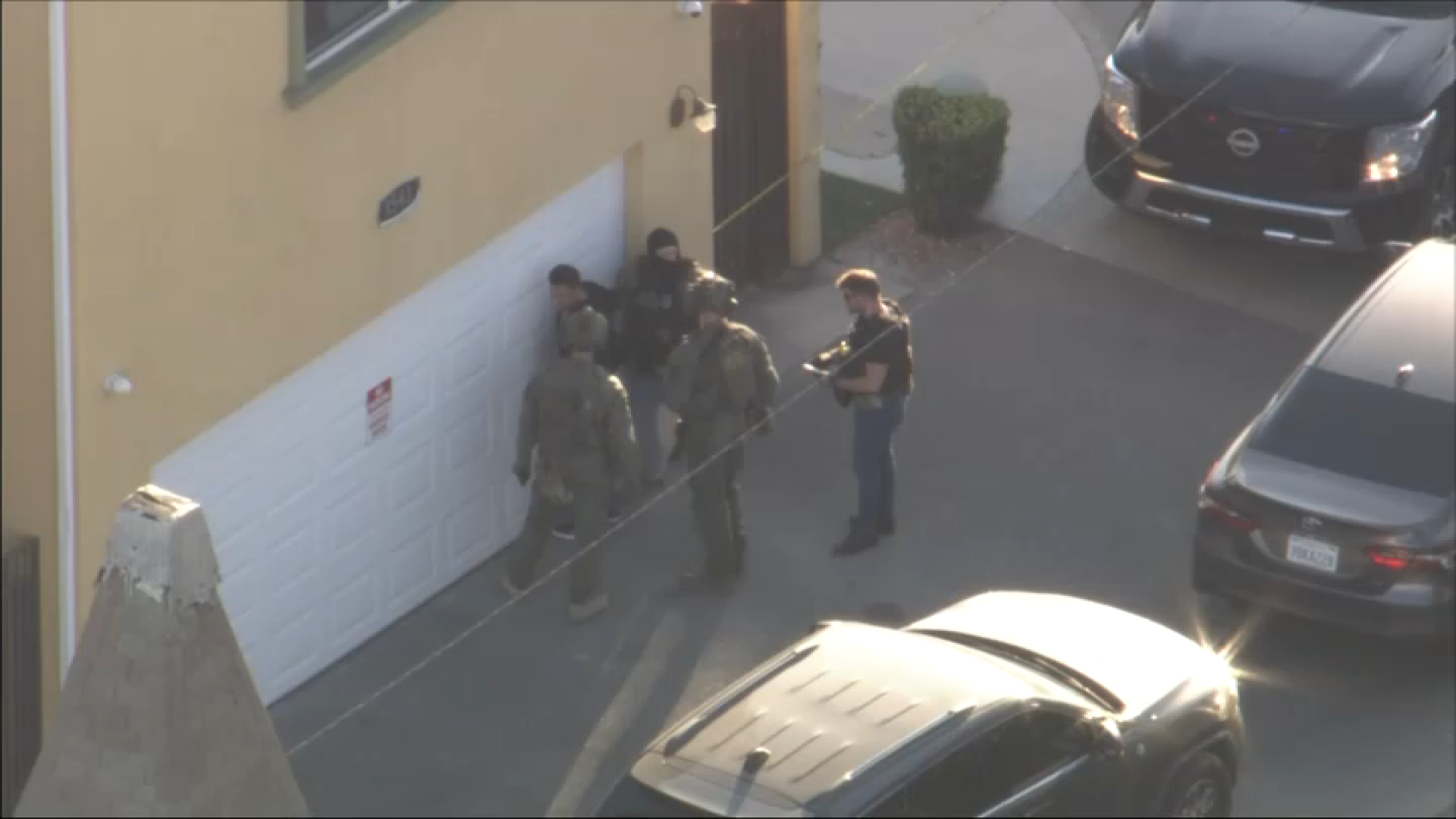Members of the military are setting up tents and helping with immigration enforcement. NBC 7’s Shelby Bremer reports.
An additional 1,500 troops have arrived at the U.S.-Mexico border after President Donald Trump declared a national emergency in one of his first official acts.
Hundreds of Marines were stationed in the San Diego region by Friday, with tents set up in a parking lot near the Imperial Beach Border Patrol station.
Five hundred Marines had already previously been stationed in the San Diego area, on standby to combat wildfires across Southern California. The Department of Defense released images showing Marines at Camp Pendleton loading concertina wire into trucks, as well as installing that wire on the border wall in San Ysidro, fulfilling one facet of their deployment: enhancing physical barriers.
Military helicopters could also be seen flying overhead near the border wall, part of the Department of Defense’s aerial coverage as part of the deployment: UH-72 Lakota military helicopters deployed starting Tuesday, with additional aircraft available for intelligence and surveillance.
Get top local stories in Southern California delivered to you every morning. Sign up for NBC LA's News Headlines newsletter.
The military will also run deportation flights for more than 5,000 people detained by Customs and Border Protection in the San Diego and El Paso, Texas, sectors.
The additional troops and aerial support come after Trump declared a national emergency at the southern border, repeatedly painting the flow of migrants as an “invasion" as he looks to fulfill his signature campaign promises to tamp down immigration and ramp up deportations.
Just miles from the military action at the border, California Attorney General Rob Bonta was in San Diego Friday promising legal action should the Trump administration violate the law.
Local
Get Los Angeles's latest local news on crime, entertainment, weather, schools, cost of living and more. Here's your go-to source for today's LA news.
“Generally, the military may act in a supportive role,” Bonta said at a news conference after meeting with immigrant advocacy organizations to hear their concerns. “The law has established that that supportive role. They can't be involved in primary, direct, civil immigration enforcement.”
“If the military moves outside its supportive role, it would be very potentially violating the law,” he continued. “It'll depend on what authority the president has invoked, his justification for invoking it, whether there's actually a basis for it.”
“If it moves beyond that, then we'll take action because it will be unlawful,” Bonta said, noting his office filed lawsuits against the first Trump administration more than 120 times.



